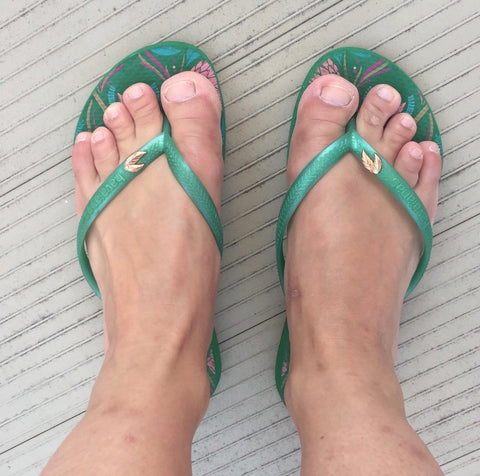A word from our founder
Many have expressed concern about using the word "disfigurement" in our branding. I can understand that people don’t like to be described as "disfigured" because I used to dislike being described that way too. This is, in part, because of the word’s prefix; dis- implicates that there is something wrong or negative with ones figure.
I also understand why people do not like when someone else gives them an identity that they do not ascribe to. It is not only disrespectful, but it can also cause pain and lead others to withdraw from society. This is why I make sure to pay close attention to the words that our collaborators use to describe their experience; I strongly believe that language is a powerful tool for healing. Thus each of our bathing suits comes with a bag detailing the story behind our volunteers’ difference, as using the exact words that they themselves use to describe their experience helps them own and embrace their narrative.
When people ask why I use the term “disfigurement” I explain that I have done my research. The most accurate term to encompass all visual differences from burn scars to facial palsy, among others, is disfigurement. This obviously becomes problematic when you want to use one word to describe something as vast as it is universal, because, as my geneticist once told me: “in a sense, we all have something.”
My concern with using any other word other than disfigurement, be it visual or physical difference, is that by doing so it is not clear enough what we are referring to. A physical difference can be having brown hair, as opposed to black, for example. If we are not clear about what we are referring to or if there is any confusion as to what we are trying to do, we will fail to break the stigma that surrounds not only the word in question, but the community it seeks to represent.
I want to invite you all to help me give a new breath of meaning to the word disfigurement. Instead of being constricted by the word’s literal meaning, we should feel empowered to give new definitions to the words that make us uncomfortable or that cause us pain. By taking ownership of the language, we can change not only our perceptions but the perceptions of others. And that is powerful.